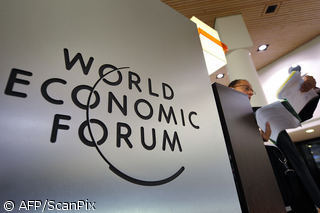The Georgian government and the International Monetary Fund remain at odds over ways to close the Caucasus country’s widening budget deficit, and over other measures to improve economic policy
Published:
20 July 2003 y., Sunday
The IMF has given Georgian officials until mid August to implement reforms in several specified areas. At stake for Tbilisi is not only direct IMF assistance, but also the Georgian government’s ability to reschedule its Paris Club debt.
An IMF delegation wrapped up a fact-finding mission to Georgia on July 7. At the conclusion of the visit, IMF representatives issued a memorandum stating that its ability to complete a final review of a nearly three-year-old Poverty Reduction and Growth Facility (PRGF) was dependent on the Georgian government’s willingness to carry out targeted reforms. The IMF set August 15 as the deadline for Tbilisi for reforms, including: trimming roughly 100 million lari (about $47 million) from the state budget; improving tax collection while simplifying the tax code; raising energy tariffs; and settling arrears to the state pension system.
If Georgia is unable to implement the changes, the IMF is likely to withhold the final tranche of a $31 million loan under the PRGF. Of far greater importance for Georgia, the IMF has threatened to withdraw its support for Tbilisi’s efforts to get its Paris Club debt rescheduled. Talks between Georgia and the Paris Club of creditor nations are scheduled to occur in September. If Tbilisi is unable to reschedule the debt, it faces a potentially budget-busting $50 million payment by the end of 2003.
"We’ve been trying to complete this [PRGF] review since November," IMF Resident Representative to Georgia Jonathan Dunn told EurasiaNet. However, Dunn stressed that the IMF "has left the door cracked open" for Georgia to make the demanded policy changes.
The IMF stance creates a quandary for Georgia’s government, as parliamentary elections loom in November. [For background see the Eurasia Insight archives]. Implementation of the IMF-mandated reforms could stir popular dissatisfaction, possibly costing President Eduard Shevardnadze supporters at the polls in November. Conversely, inaction by the government, especially concerning the Paris Club debt rescheduling, could create an even bigger public backlash. Either way, Georgia seems to be facing its last opportunity to implement reforms and avoid severe fiscal strain, possibly even default.
Šaltinis:
eurasianet.org
Copying, publishing, announcing any information from the News.lt portal without written permission of News.lt editorial office is prohibited.
The most popular articles
 Reform of the banking system was one of the key themes at this year's World Economic Forum in Davos, with bankers coming in for a lot of criticism.
more »
Reform of the banking system was one of the key themes at this year's World Economic Forum in Davos, with bankers coming in for a lot of criticism.
more »
 Small firms have been hard hit by the economic crisis, and so must be given incentives and support, including easier access to credit, help with innovation, tax breaks and less red tape, MEPs on Parliament's Special Committee on the Financial, Economic and Social Crisis (CRIS), and experts agreed at a workshop on Monday.
more »
Small firms have been hard hit by the economic crisis, and so must be given incentives and support, including easier access to credit, help with innovation, tax breaks and less red tape, MEPs on Parliament's Special Committee on the Financial, Economic and Social Crisis (CRIS), and experts agreed at a workshop on Monday.
more »
 The elections and investiture of Porfirio Lobo as President of Honduras have cleared the way for the EU to restore normal relations with the Central American country and negotiations for signing a bi-regional Association Agreement may soon resume.
more »
The elections and investiture of Porfirio Lobo as President of Honduras have cleared the way for the EU to restore normal relations with the Central American country and negotiations for signing a bi-regional Association Agreement may soon resume.
more »
 The European Commission has approved applications from Lithuania for assistance under the European Globalisation Adjustment Fund (EGF).
more »
The European Commission has approved applications from Lithuania for assistance under the European Globalisation Adjustment Fund (EGF).
more »
 The European Commission has decided to refer Italy to the European Court of Justice (ECJ) on the basis of Article 108(2) of the Treaty on the Functioning of the European Union (TFEU) for failing to comply with a Commission decision of July 2008.
more »
The European Commission has decided to refer Italy to the European Court of Justice (ECJ) on the basis of Article 108(2) of the Treaty on the Functioning of the European Union (TFEU) for failing to comply with a Commission decision of July 2008.
more »
 The EBRD is helping to strengthen the financial sector in Bosnia-Herzegovina (BiH) with a €50 million credit line to the Deposit Insurance Agency of Bosnia and Herzegovina (DIA), the Bank’s first investment in a deposit insurance entity.
more »
The EBRD is helping to strengthen the financial sector in Bosnia-Herzegovina (BiH) with a €50 million credit line to the Deposit Insurance Agency of Bosnia and Herzegovina (DIA), the Bank’s first investment in a deposit insurance entity.
more »
 In its first investment in the natural resources sector in Bosnia and Herzegovina, the EBRD is providing a €17 million sovereign loan to finance the gasification of the Central Bosnia Canton.
more »
In its first investment in the natural resources sector in Bosnia and Herzegovina, the EBRD is providing a €17 million sovereign loan to finance the gasification of the Central Bosnia Canton.
more »
 The EBRD is increasing the availability of financing to private businesses in Armenia with a $5 million credit line and a $3 million trade finance facility to ArmSwissBank for small and medium companies (SMEs).
more »
The EBRD is increasing the availability of financing to private businesses in Armenia with a $5 million credit line and a $3 million trade finance facility to ArmSwissBank for small and medium companies (SMEs).
more »
 On January 27 the European Commission assessed the action taken by Lithuania, Malta, Latvia and Hungary in response to recommendations proposed by the Commission and endorsed by the Council in July 2009 in respect to the correction of their respective budget deficits.
more »
On January 27 the European Commission assessed the action taken by Lithuania, Malta, Latvia and Hungary in response to recommendations proposed by the Commission and endorsed by the Council in July 2009 in respect to the correction of their respective budget deficits.
more »
 EUROSTAT announced that Lithuania’s GDP rose by 6.1 % in the 3rd quarter of 2009 versus the previous quarter.
more »
EUROSTAT announced that Lithuania’s GDP rose by 6.1 % in the 3rd quarter of 2009 versus the previous quarter.
more »